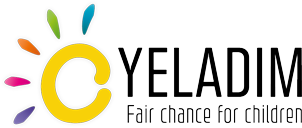Project Description
Parents as Partners
The purpose of the program is to develop a practical model of partnership between the parents of the children being educated in residential group homes, the staff members of the homes, and the social services in the communities the children come from.
The concept guiding this program is that the child belongs to his family even when he is living at the residential group home. The function of the group home is to ensure that the parents will – to the extent that this is possible – be full partners in their children’s lives during the period that they reside in the group home, and to preserve and nurture the child’s relationship with the family.
The involvement of the parents in their child’s education will improve the child’s adjustment to the residential group home, continuity between the periods at the group home and holidays at the parents’ home, enhancement of the relationship between the child and the family, and a better return to the family home after having lived in the residential group home.
Project Description
The concept of ‘partnership’ expresses a radical change compared to the existing practices in residential group homes for children. To this day, these homes are perceived as an alternative home for the child, and at best the parents are perceived as clients – so that the main response was treatment intervention. The Parents as Partners program perceives the parents as partners in everything related to their children’s lives, as experts in respect of their children, and sometimes also as clients who need our assistance. Hence, the methods of working with the parents are very varied.
Parents as partners model includes direct intervention with the child and with the family; the development of responses to the needs of the family in the residential group homes; and joint work with the social services in the community. The key to change is in intensive work with the therapeutic, educational, and administrative staff at the residential group home – work that includes training and supervision of the staff. The result should be a change in the organizational culture of the residential group homes, so that partnership with the parents will become a regular part of daily practice.
We must remember that the child’s stay in the residential group home is not the solution, but merely a means and part of the overall intervention with the family. Therefore, the program sets as its objective the creation of a continuum of intervention with the welfare departments in the community.
Yeladim’s partners are – the Ministry of Social Affairs, Ashalim, the three pilot Group Homes, Altshuler-Shacham, and the Sebba Foundation
Project Impact
The Parents as partners program has functioned as a pilot study over the past years in ten residential group homes. In each home the program ran for three years. From the fourth year onward the approach became a regular feature of these three homes.
During 2019, the Ministry of Social Affairs decided to adopt Yeladim’s Parents as partners plan, which was performed successfully, and to implement it in all 110 residential group homes operating in Israel.
The plan also has implications at the national level. The perception of the family has ramifications on issues such as placement of children, the policy of returning children to their homes, and more.
The subject is now central in the discourse in the residential group homes and in the Children & Youth Services. The subject is far from simple; it requires a change in perception and work patterns. We are not talking about just another plan for the residential group home programs, but rather getting inside the existing work array at the residential group home and creating change.

